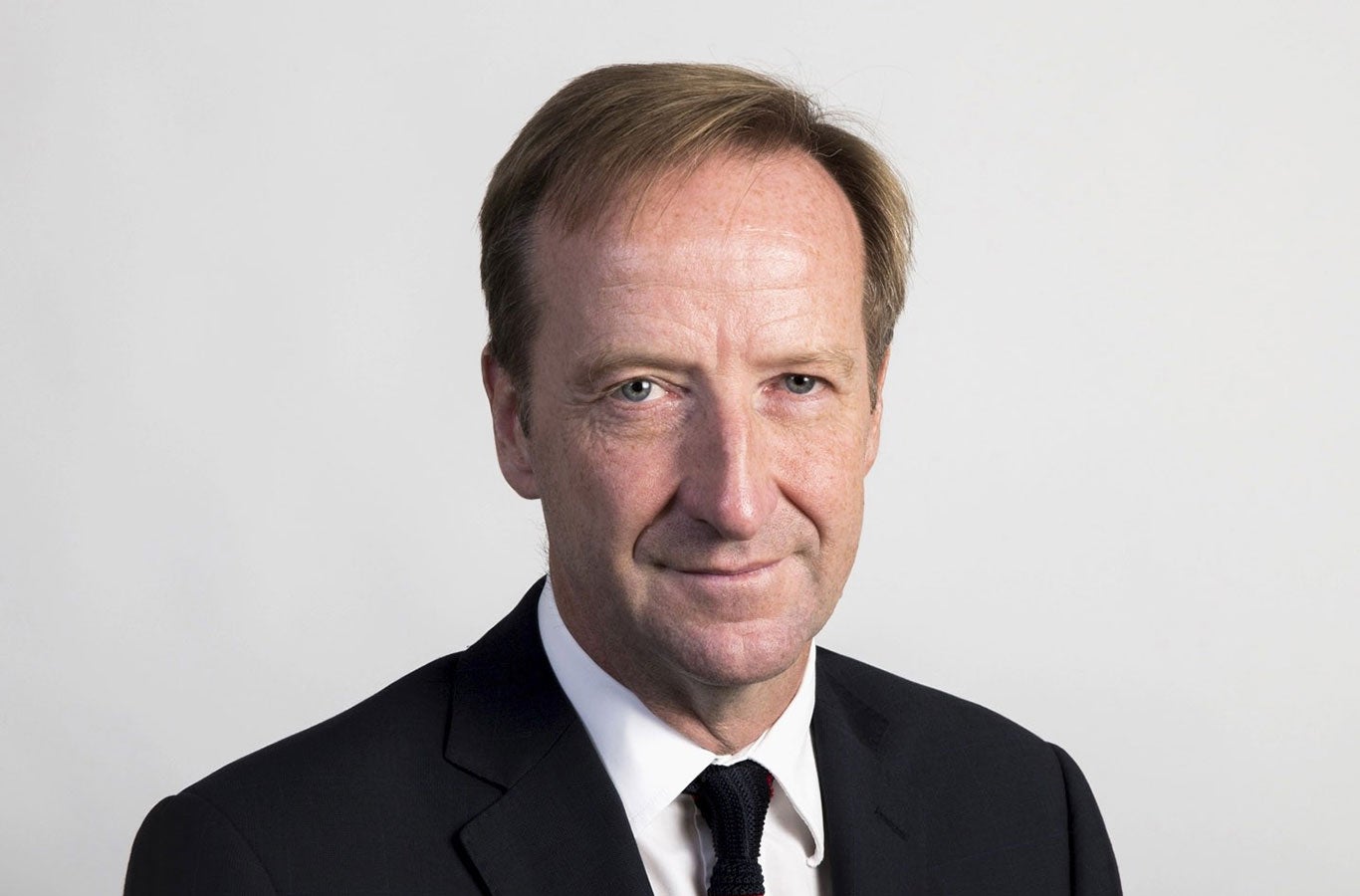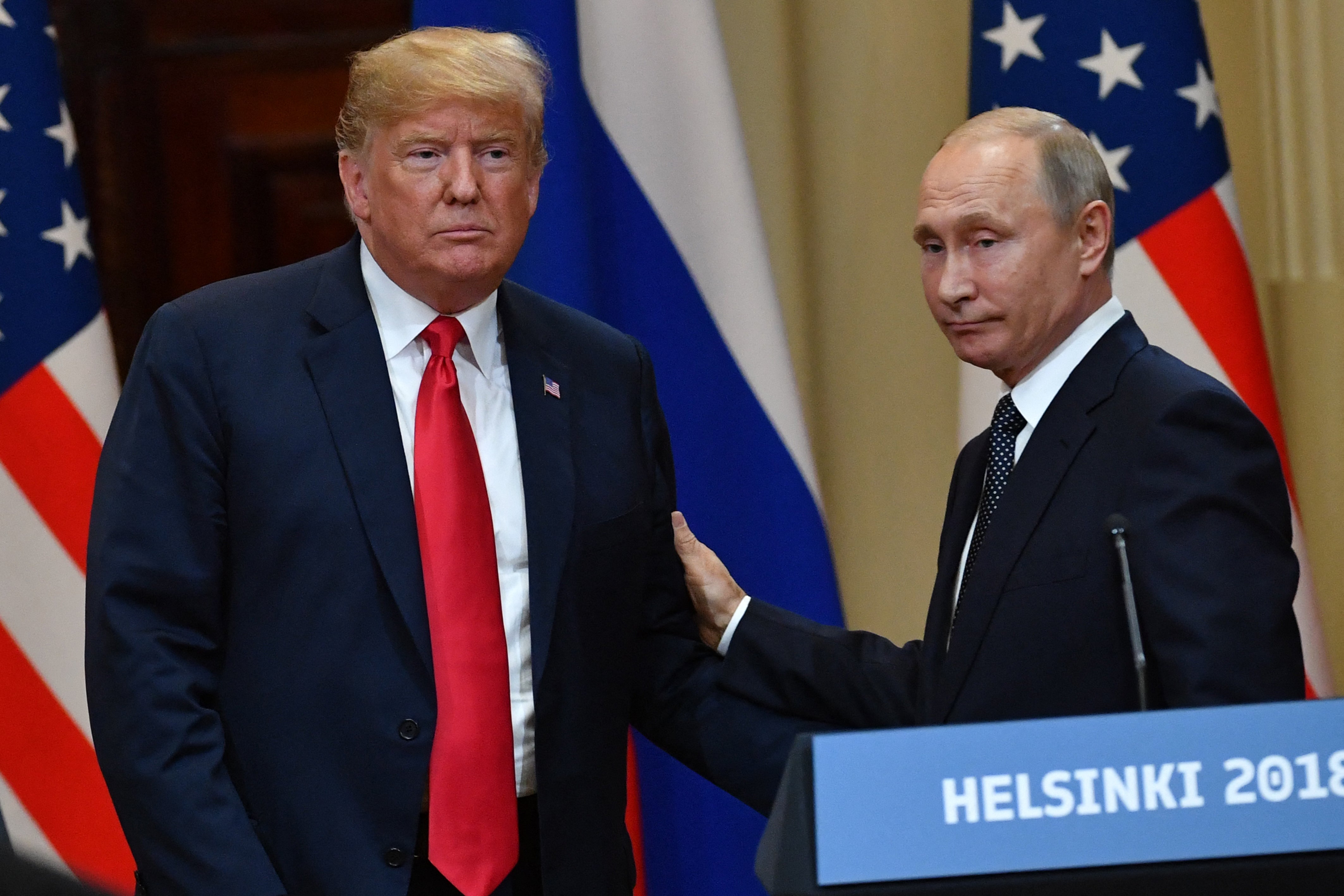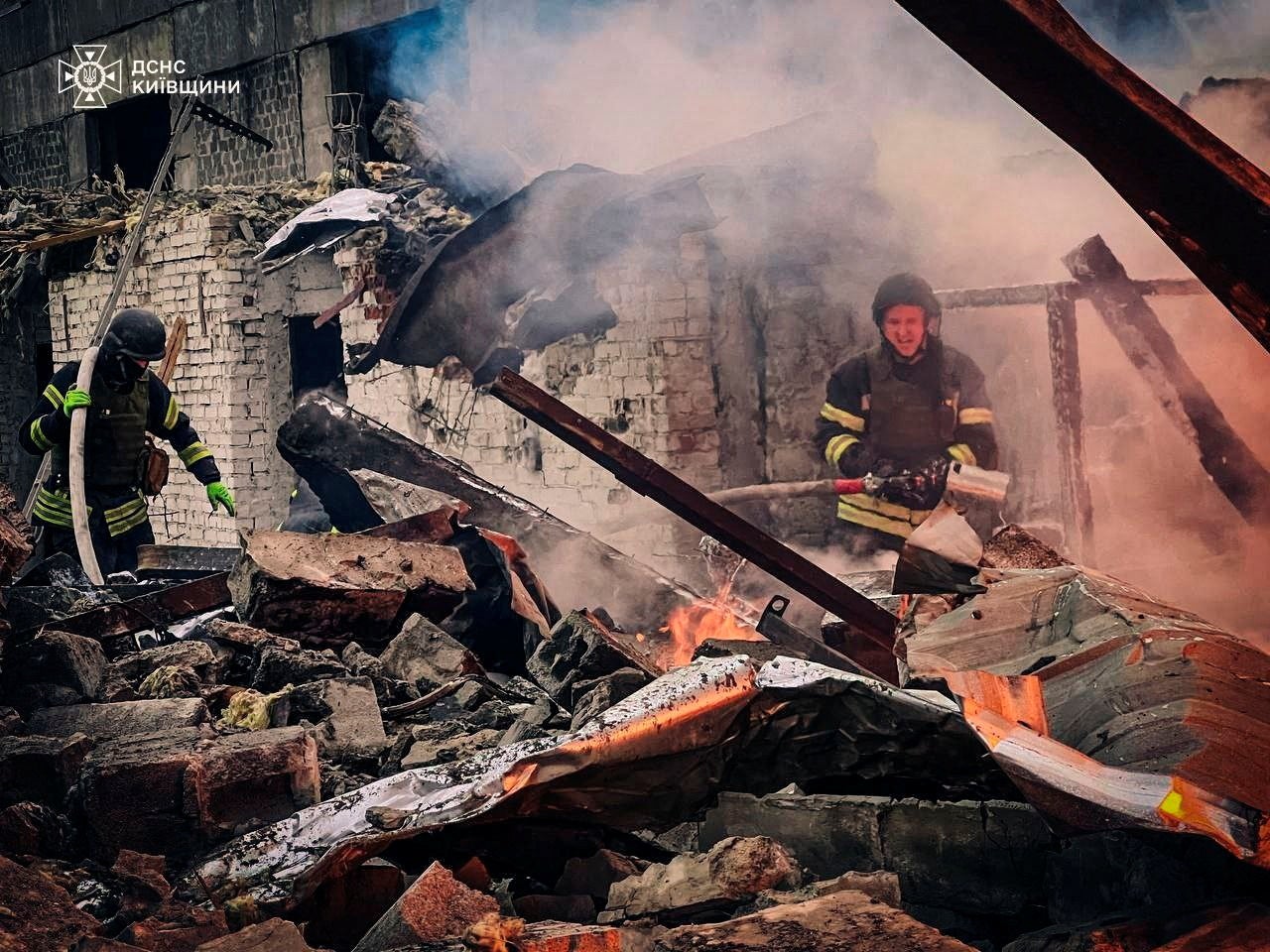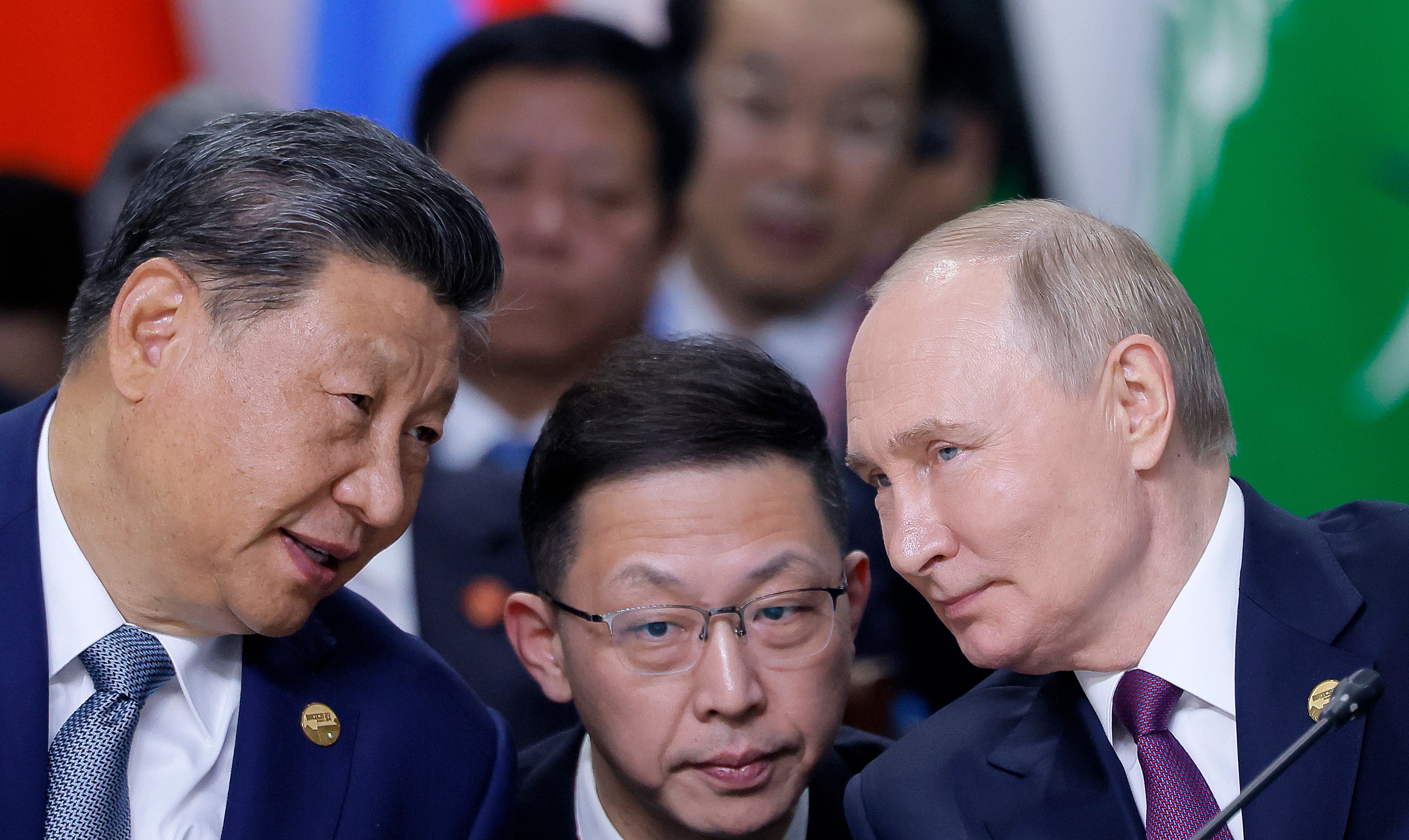Putin and Trump are deluded about one another – and Ukraine will pay the price
With Donald Trump vowing to the end war in Ukraine quickly, Tom Watling speaks to American and British former officials about the overconfidence of both the US president-elect and the Russian leader

Donald Trump and Vladimir Putin seriously underestimate what the other is capable of and that carries far-ranging risks for Ukraine over Russia’s invasion, Britain’s former spy chief and ex-diplomats have told The Independent.
Trump’s US election victory last week has upended Europe’s plan to back Kyiv for “as long as it takes”. His focus is on ending the war quickly, even if that potentially means pushing Kyiv to cede territory currently occupied by Russia.
Sir Alex Younger, former chief of MI6 from 2014 to 2020, believes both the incoming president and his Russian counterpart overestimate their ability to influence the other.
“I think Trump overestimates his ability to force Putin into a land swap where Putin clearly wants a lot more, when he feels that he is winning and when he has to show [the Russian people] a lot more if he is to justify the appalling sacrifice he’s imposed,” he says. “Trump is underestimating the challenge and overestimating his influence.”

There have been reports about a call between Trump and Putin in the wake of the US president-elect’s win at the ballot box, but they have been denied by the Kremlin.
Sir Laurie Bristow, the UK’s ex-ambassador to Moscow from 2016 to 2020, says such a move would be a dangerous game to play. It could also be indicative of Trump’s hubris. The incoming president came under fire during his first term when he met with Putin in July 2018 in Helsinki, Finland, without his advisors present. He went on to contradict US intelligence agencies by saying there had been no reason for Russia to meddle in the 2016 election which handed him a first term in the White House.
“I think it speaks volumes about his possible overconfidence and a lack of understanding about the personality that he is dealing with,” says Sir Laurie, describing Putin as a “KGB man through and through”.
“It has to be a very, very dangerous thing to try to deal in matters of any substance with Putin without officials in the room.”
From the Russian side, Sir Alex believes that Putin “could well underestimate the risks of pushing it too hard”.

While current president Joe Biden may be more by the book in his response to Putin’s threats, something that Ukrainian officials privately say they find frustrating, Trump appears more open to the use of force.
“I think the thing with Trump is he wants to make this go away,” says Sir Alex. “He’s probably prepared to give away a great deal. But clearly, if he is positioned fundamentally as a loser, he could go either way.”
Kurt Volker, an American former special representative for Ukraine negotiations between 2017 and 2019, during Mr Trump’s first term, sees this as the returning president’s ultimate strength.
“One thing Trump doesn’t like is people taking advantage of him, or trying to betray him,” he says. “I think that is going to be a real factor in dealing with Putin.”
He does not believe Putin will respect any deal; he says “without a doubt” that the Russian leader will use a ceasefire to rebuild his forces and try to attack Ukraine again, as he has done with previous agreements around the frontline in eastern Ukraine in 2014 and 2015.

But Volker believes that Trump will ensure security guarantees for Ukraine that preclude Moscow’s ability to have success in any future attack.
“Trump will create enough strength that the Russians don’t challenge it. That’s the only way,” he says.
Volker, who was also George W Bush’s last ambassador to Nato, says he believes Trump will ensure Ukraine joins the alliance, and he will get the Europeans to pay for it.
In the meantime, he will provide Ukraine with enough weapons to ensure the frontline stays frozen.
When asked how Trump could get Putin to agree to Ukraine joining Nato, given the Russian leader’s insistence that Ukrainian neutrality is key to any deal, Volker says Moscow simply has no choice.
“Putin doesn’t have a say over Ukraine joining the European Union and Nato. We shouldn’t be seeking Putin’s agreement to any of that. That just happens,” he says.
Both Sir Alex and Sir Laurie believe this is wishful thinking. All believe, however, that security guarantees for Ukraine are a key issue.
“The red line absolutely has to be whether the residual Ukraine continues to be a country,” says Sir Alex. “I think Putin will push very hard for that not to be the case. But that would be a big mistake.”

“I think Trump wants Europe to own this, which is not unreasonable, actually,” Sir Alex adds. “But it is just that they are not in a position to own it yet.”
He believes there is also a heightened need for the US to maintain strong relations with Nato and its allies more widely. Leaving Europe to fend for itself against Russia could damage those relationships.
Any negotiation with Putin on Ukraine has to take into consideration that Russia is fighting alongside North Korean troops, armed with Iranian drones, while also trying to make the most of its relationship with China.
“To deal with these kinds of very complex, multifaceted threats effectively, your strengths lie in your alliances,” Sir Laurie says.
“Maybe this is just wishful thinking here, but if [Trump] was thinking seriously about geopolitics, he would be thinking about how to work with the US’s allies rather than against them across a whole range of things.”

One issue on which all the former officials The Independent has spoken to have agreed, is that Europe needs to step up in its defence not just of Ukraine – but of the continent. That would’ve been true whether Trump or Kamala Harris had been victorious in the election.
European leaders from French president Emmanuel Macron to Polish prime minister Donald Tusk, as well as the EU’s incoming foreign policy chief Kaja Kallas, have been quick to make that point after Trump‘s re-election.
“I think a big part of the solution, and I think I can finally see signs that this is happening, is that Europe understands its responsibilities,” says Sir Alex.
But does he think the current Labour government in the UK is ready to spend more on defence?
“I don’t think they want to, and I don’t blame them,” he says. “But I think it’s increasingly getting to the point where they just don’t have any choice. And I don’t say that lightly.
“We could end up with an empowered and vindicated, vengeance-led authoritarian on our border. We can deal with that but only if we take it seriously.”






Join our commenting forum
Join thought-provoking conversations, follow other Independent readers and see their replies
Comments